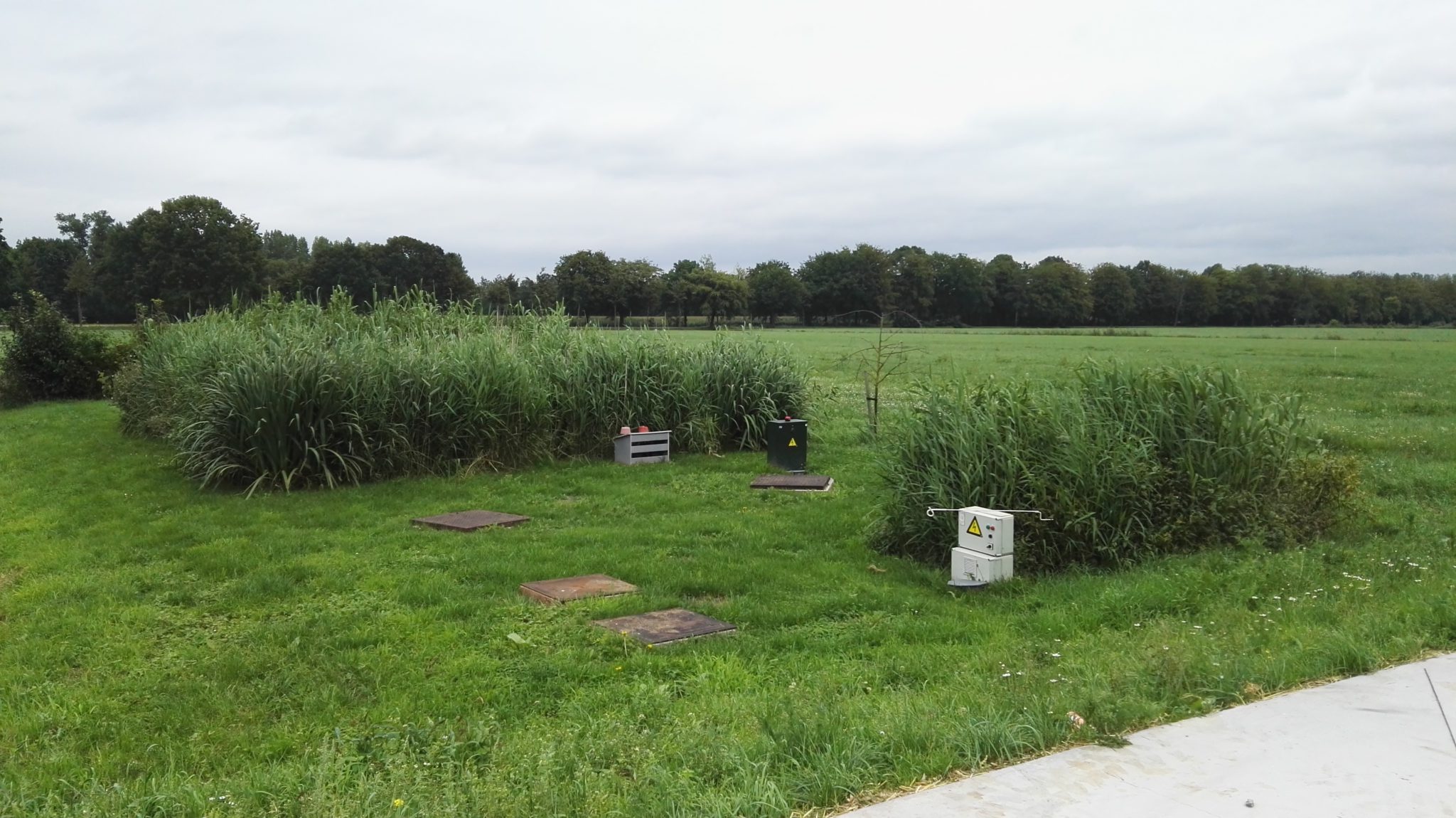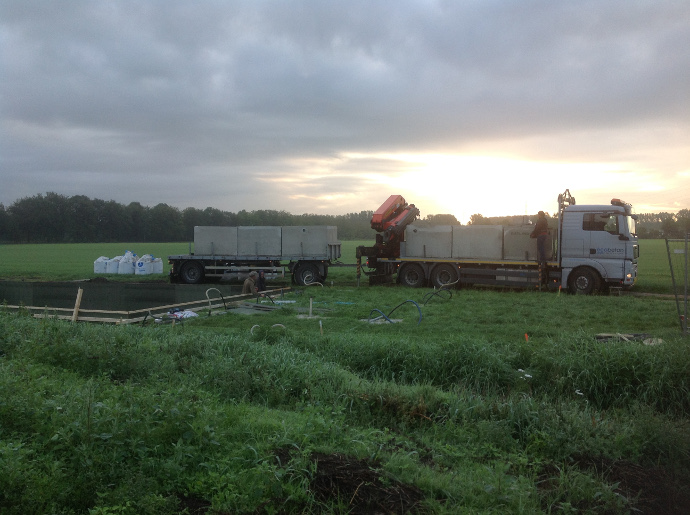In September 2015, Rietland laid out an aerated reed bed at the Hooibeekhoeve.
The Hooibeekhoeve in Geel is a test station for dairy farming in the Province of Antwerp in Geel.

As early as 1996, reed land laid one of the first percolation reed fields there for the purification of rinsing water from the milk house. This reed field has functioned for years without any problems, but now it was time for a new system: the milking parlor has been expanded and instead of a traditional milking installation, two milking robots are placed. This results in a considerably higher production of milk rinsing water and the extension of the stable was also planned at the location where the reed field used to be.
Rietland has already built reed fields many times in the past for the purification of rinsing water from dairy farming. These were in most cases vertical flow-through helophyte filters (percolation reed beds). For the new system at the Hooibeekhoeve, however, an aerated reedbed of the FBA® principle was chosen. This system, developed in the USA, offers a number of important advantages over traditional reed beds: it takes up less space, it is cheaper and it provides better purification performance. In the purification of milk rinsing water, this better performance is mainly reflected in the lower nitrogen values. With aerated reed beds, Rietland succeeds in meeting the very strict discharge standard for nitrogen that is set for industrial waste water in Belgium: 15 mgN / l.

In addition to good nitrogen removal, the necessary attention was paid to phosphate removal. Since acid rinsing in Belgium mainly takes place with phosphoric acid, a relatively large amount of phosphate ends up in the wastewater. In order to still bring the phosphate level down sharply to the discharge requirement of <1.5 mgP / l, an additional post-purification was chosen in the form of a basin filled with apatite. Apatite is essentially phosphate ore, which is mainly mined in North Africa. French research has shown that precisely this phosphate ore also works very well to bind phosphate. New apatite is hereby formed. This means that this material is also hardly subject to saturation and will be able to work for many years to come. Rietland's experience shows that adding iron in the filter always leads to saturation after a few years, after which no phosphate is removed from the waste water. Moreover, iron-bound phosphate is no longer easily available as a fertilizer. Apatite does not have these disadvantages. it is actually a raw material for the fertilizer industry. In this way, a sustainable solution has been found for phosphate binding, which, moreover, does not cost energy and does not yield additional phosphate sludge, but on the contrary: a usable fertilizer.
In addition to the reed field that purifies the rinsing water from the milking parlor, a smaller reed field was also laid out for the purification of the sanitary waste water of the type Q-phyt. Rietland developed this compact aerated prefab reed field together with Eco-concrete.
